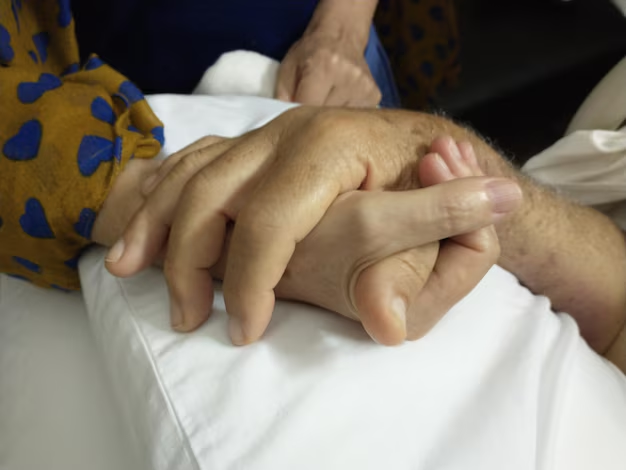Your Guide to Can Parkinson's Disease Be Cured
What You Get:
Free Guide
Free, helpful information about Parkinsons FAQ and related Can Parkinson's Disease Be Cured topics.
Helpful Information
Get clear and easy-to-understand details about Can Parkinson's Disease Be Cured topics and resources.
Personalized Offers
Answer a few optional questions to receive offers or information related to Parkinsons FAQ. The survey is optional and not required to access your free guide.
Is There a Cure for Parkinson's Disease? What You Need to Know
Imagine waking up every day with trembling hands that make simple tasks difficult, or the frustration of trying to express yourself with a voice that no longer cooperates. These are just a few of the challenges faced by individuals living with Parkinson's Disease. This neurodegenerative disorder primarily affects movement, but its reach goes beyond, impacting every aspect of daily life. So, the pressing question is: Can Parkinson’s Disease be cured?
The simple answer is, no, there is currently no cure for Parkinson's Disease. However, numerous treatments are available that can manage symptoms and improve the quality of life. The journey towards a cure is ongoing, with researchers dedicating vast resources to uncover the underlying causes and potential therapeutic options. While a cure remains elusive, people with Parkinson's can benefit greatly from available treatments and emerging therapies.
Understanding Parkinson's Disease
Parkinson's is a progressive neurodegenerative disorder that affects the brain's ability to control movement. As dopamine-producing neurons deteriorate, symptoms such as tremors, stiffness, and slow movement appear. The severity and progression of symptoms vary among individuals, making personalized treatment plans essential.
Current Treatments and Management:
Medications: Drugs like Levodopa and Dopamine agonists are mainstays in symptom management, helping to replenish or mimic dopamine in the brain.
Lifestyle Adjustments: Regular exercise and occupational therapy can greatly aid in maintaining mobility and independence.
Surgical Options: In certain cases, procedures like deep brain stimulation can be considered to alleviate severe symptoms.
While these treatments do not halt disease progression, they play a crucial role in managing symptoms effectively.
Financial and Educational Support for Parkinson’s Patients
Navigating the financial landscape when managing a chronic illness can be daunting. Thankfully, there are numerous financial assistance programs and resources available to support Parkinson's patients and their families.
Government Aid Programs
Medicare and Medicaid: These provide coverage for many medical expenses related to Parkinson’s care. Eligibility and coverage details vary, so it's essential to explore your options thoroughly.
Social Security Disability Benefits: Individuals with Parkinson's may qualify for disability benefits, offering significant financial relief.
Financial Assistance and Credit Solutions
Non-Profit Organizations: Various organizations offer financial support, from helping with medical bills to providing emergency funds.
Credit Counseling Services: Professional credit counseling can help manage debt related to medical expenses, offering tailored payment plans and debt relief options.
Educational Grants and Scholarships
Caregiver Education Programs: Scholarships and grants are offered to educate caregivers, ensuring they are qualified to provide comprehensive support to Parkinson’s patients.
Patient Education Resources: Many organizations provide free or low-cost educational materials and workshops, empowering patients with knowledge about their condition and care strategies.
Taking the Next Step
While the search for a cure for Parkinson’s Disease continues, individuals can lead fulfilling lives with the right support and resources. Engaging with available financial assistance programs and educational opportunities is a crucial step not only in managing the disease but also in ensuring a stable, resilient approach to health and well-being.
Helpful Resources for Parkinson's Patients and Families
- 🏥 Government Aid Programs: Medicare, Medicaid
- 💰 Financial Assistance: Non-Profit Support, Disability Benefits
- 💼 Credit Solutions: Professional Credit Counseling Services
- 🎓 Educational Opportunities: Caregiver Scholarships, Patient Workshops
What You Get:
Free Parkinsons FAQ Guide
Free, helpful information about Can Parkinson's Disease Be Cured and related resources.

Helpful Information
Get clear, easy-to-understand details about Can Parkinson's Disease Be Cured topics.

Optional Personalized Offers
Answer a few optional questions to see offers or information related to Parkinsons FAQ. Participation is not required to get your free guide.


Discover More
- Are There Environmental Causes Of Parkinsons
- Can Alcohol Cause Parkinson's
- Can Concussions Cause Parkinson's
- Can Concussions Cause Parkinson's Disease
- Can Dogs Get Parkinson's Disease
- Can Dogs Get Parkinsons
- Can Dogs Have Parkinson's
- Can Dogs Have Parkinson's Disease
- Can Females Get Parkinson Disease
- Can Head Trauma Cause Parkinson's
